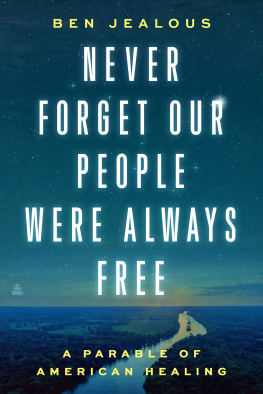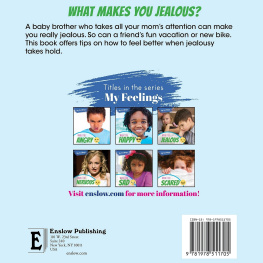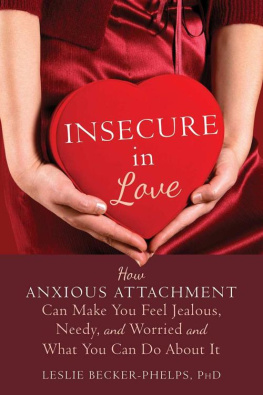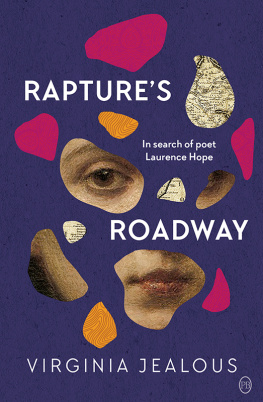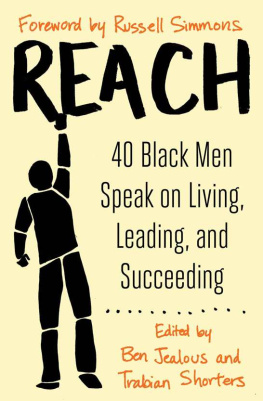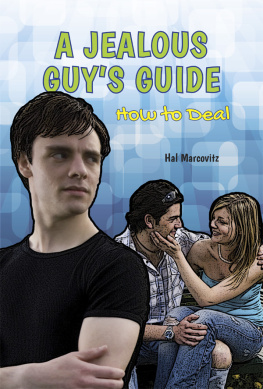We were on a commercial break. I was sitting at the table on NBCs Sunday morning talk show Meet the Press. It was 2013, and I was national president of the NAACP. I was there to discuss the case of yet another Black teenager who had been wrongfully killed.
I leaned over to the host, David Gregory, and confessed, I just found out hes my cousin.
He looked at me and shrugged. Isnt he, like, every Black persons cousin?
I was stunned by his reply. Then I remembered that President Barack Obama and Vice President Dick Cheney were cousins too. He had a point.
Im pretty sure thats not how he thinks of himself, I said with a chuckle.
The show resumed.
Later, on the way home, I pondered the exchange. I remembered that Myrlie Evers, the widow of the slain NAACP leader Medgar Evers, had once told me she was pretty sure she and the former Arizona senator (and 2008 Republican nominee for president) John McCain were cousins. Other civil rights leaders who hailed from the South said they were cousins to him too. Some Black leaders were even kin to notorious segregationists. My grandma had told me about the White supremacist senator Strom Thurmonds Black daughter long before it was national news.
I couldnt help but wonder what would happen if every American actually acted like every other American was their cousin too.
My mind drifted back to my newfound cousin. The only time I had met Cheney, a Wyoming Republican who had spent his career in Congress before ascending to the vice presidency, was at President George W. Bushs last Fourth of July party as president. I was invited to the White House because I had just been appointed to my role at the NAACP. Cheney and I were dressed identically. At the time, it was a little awkward. My recent discovery that we had common ancestors in England made me wonder if a preference for lavender checked shirts was the product of shared genes.
T hey say were headed toward a civil war.
Who is they? Historians, sociologists, television pundits, and the last guy with whom I had a real conversation at my favorite Jimmy Buffettstyle waterside bar. He was an amiable older man wearing a T-shirt that celebrated his status as a veteran. Just past seventy, hed spent half a century moving up the ranks in a grocery store. He and his wife approached where we were sitting before paying my date and I a compliment. We quickly fell into a warm conversation about life, kids, whiskey, and boats.
As we were preparing to leave, the conversation paused. The man looked at me and said, You know, this country we both love so much? Its headed toward a civil war or a revolution, I dont know which.
The only difference between the two, of course, is who wins.
I honestly dont know what to make of it all.
What I can tell you is this: America needs a spiritual reckoning and an actual revival.
We think of ourselves as a nation that makes stuff. In the past thirty years, 63,000 factories have shuttered.
We think of ourselves as a free nation. We, Americans of all colors, are the most incarcerated people on the planet.
We are home to the most innovative healthcare system on the planet. High healthcare costs have been our nations leading cause of bankruptcy for decades.
We are home to many of the worlds greatest universities. Millions upon millions of our students and graduates are in massive debt.
The life expectancy for Black men, like me and my son, remains too low, suppressed in large part by sky-high homicide rates.
The life expectancy of White men, like that man in the bar and my father, has been declining for years. It is driven by suicide rates that are even higher than the homicide rates for Black men and boys.
We no longer wonder why opiate addiction is out of control in the small towns and the big cities.
And yet, despite the sky-high tensions, despite surging gun sales, despite Americans of all colors dying from bullets all too often, I still remain optimistic about the future of our country. All of usevery American of every race, gender, creed, and colormust have faith that we can hand over a better, stronger nation to our children. Its our only path to national survival, let alone true greatness.
As the Bible reminds us, faith is hard to maintain. So as to ensure we get the lesson, the same definition of faith is repeated in both the Old and New Testaments: Faith is the substance of things hoped for, and the evidence of things not seen.
There is a reason Amazing Grace is our unofficial national anthem. We are each called to grapple honestly with the racial and political insanity into which we were born and heal our communities and ourselves. My life has taught me to realize that grace is as doable as it is urgent, for all of us and for the sake of all our children.
The more I think about the conversation in that bar, the more it occurs to me that the tensions in our nation have been building throughout this century. They surged after the terrorist attacks of 9/11. They surged after we elected Barack Hussein Obama president. They surged after we elected Donald John Trump president. They are surging now.
The first sign I got that we might be in more trouble than we realized was New Years Eve 1999.
I traveled to Ohio to celebrate that night with my godbrother Dave Chappelle, my godfathers son. He was excited to show me his first home, a ranch house just outside Yellow Springs, Ohio, that he shared with his wife Elaine.
Dave invited me, his brother Yusuf, and his oldest friend, Jamaican Marcus, to join him there. The ranch was on an old farm, surrounded by cornfields. The farm provided maximum privacy and a wonderful plot of land to explore. It was also situated between the universities where his father taught and his great-grandfather served as president: Antioch and Wilberforce.
I was excited to see it.
I should have known something was wrong when I arrived at the airport. In front of me in the security line was a man dressed for a cowboy-themed New Years event. Every article of his clothing had steel on ithis cowboy boots, his spurs, his belt buckle, his belt tip, his collar weights, his bolo tie, the ribbon holder on the side of his hat, and even the fancy washers that held together the tassels on his jacket.
Back then, security at our airports wasnt generally so tight. The metal detectors were more of a formality. They normally didnt check ID. But Y2K had everything tighter than a drum.
Everyone from preachers to Prince was prophesizing about what might occur at the end of the millennium that night. Meanwhile, what had governments and corporations freaking out was an entirely different problem. Computers, of course, were a twentieth-century invention. As such, their codes ran on two-digit inputs for each year. January 1, 1999, was 01/01/99. That had never been a problem. However, at the start of a new millennium, there was concern that computers would think time had been turned back to January 1, 1900. If that happened, airplanes could disappear from radar screens, bank computers could crash, society could find itself suddenly plunged into chaos.
At the FBI and the CIA, there was concern that everyone from domestic gangs to international terrorists were prepared to exploit the moment. Meanwhile, most Americans simply wanted to party like it was 1999.
That night, IDs were being checked, everything was being scanned, and the metal detectors were set on high.
As I stood in the security line, I watched them all but strip the cowboy in front of me.

